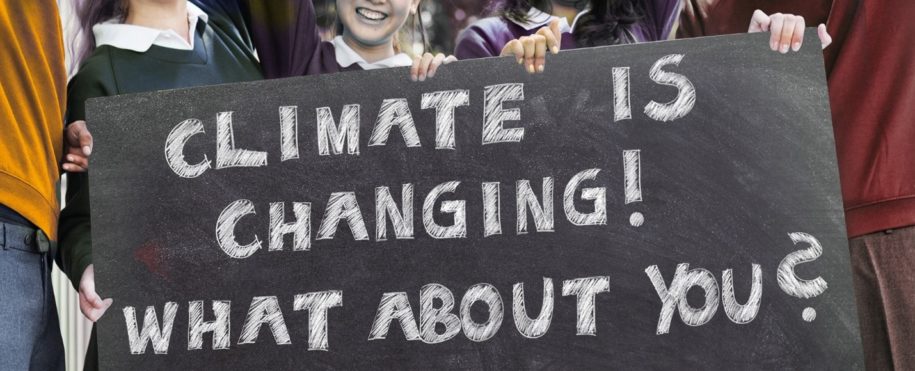Similar to the concept of corporate social responsibility (CSR), the practice of ESG was born out of actions in the business community over several decades, leading to our understanding of ESG today. The term ESG refers to evaluating a business by its environmental, social, and governance factors (going beyond traditional financial metrics). ESG investing is quickly gaining momentum in global financial markets.
The relevance of ESG is in the fact that climate change has impacted societies and economies around the world. This has become more apparent recently with the increase in extreme weather events (ice storms, tornadoes, floods, hurricanes, droughts). Additionally, the COVID-19 pandemic has highlighted several social issues, specifically the rising inequality of global income and health care. With the aid of social media, the younger generation is paying greater attention to climate change and social inclusivity, bringing these issues to the forefront of business markets around the world. Though recent events may have “set the stage” for ESG to step into the spotlight, the central factors of these principles have been growing for some time.
Historical timeline of ESG
The 1950s and 60s
The origin of the modern concept of ESG is rooted several decades back when electrical and mine worker unions started investing pension capital in affordable housing and health care facilities. At the same time, socially responsible investing (SRI) started to take root in the United States when Vietnam War protestors demanded that university endowment funds no longer be used by defense contractors. Besides being the backdrop for the war, the 1960s was the period for several human rights movements: the Civil Rights Movement, the Black Power Movement, the American Indian Movement, a further push for women’s rights, a surge in the rights of farmworkers, and the Green Power Movement.
The 1970s
In the 1970s, a junior Senator named Gaylord Nelson rallied almost 20 million people to protest against instances of environmental destruction, both within the United States and abroad. This led to April 22nd being designated as “Earth Day” and was followed by a cascade of major steps towards conservation. According to the Earth Day official website, the US Environmental Protection Agency (EPA), the National Environmental Education Act, the Occupational Safety and Health Act, and the Clean Air Act were all sparked by this day. Within a couple of years, the U.S. Congress passed the Clean Water Act, which was shortly followed by the Endangered Species Act and the Federal Insecticide, Fungicide, and Rodenticide Act. These laws set national and global standards for the protection of the environment and the impact that environmental factors have on human health. Working together, these laws have protected the health and safety of millions of individuals and saved hundreds of species from extinction.
The 1980s
In the 1980s, ESG continued to take shape as the US Government passed the “Comprehensive Anti-Apartheid Act,” encouraging South Africa to eradicate racial discrimination. This movement began after a group of students at Columbia University protested South Africa’s policy of apartheid and demanded that the university should stop all investments made in companies doing business with South Africa. There were also several environmental disasters during this decade, including the massive oil spill in Prudhoe Bay, Alaska. This unfortunate occurrence set in motion the creation of the Coalition of Environmentally Responsible Companies, also known as CERES.
The 1990s
The 1990s saw many distinct developments for ESG and ESG investing. The Domini 400 Social Index (today known as the MSCI KLD 400 Social Index) was created in 1990. This index was the first of its kind to track sustainable investment through a capitalization-weighted methodology and gives attention to companies with positive ESG ratings. In 1992, the United Nations Framework Convention on Climate Change (UNFCCC) was initiated by 154 countries signing an international environmental treaty with the purpose of curbing environmental impacts across the globe. Five years later, the United Nations created an order of operations for this treaty known as the Kyoto Protocol. This protocol finally came into effect in 2005, committing 192 countries to the main action point of reducing GHG emissions. The Global Reporting Initiative was also created in 1997, creating a common means of reporting sustainability efforts.
The 2000s
In July of 2000, the United Nations Global Compact (UNGC) was formed to increase awareness of human rights, labor laws, environmental standards, and anti-corruption policies, and to call companies to embrace these goals. Today, the UNGC has been signed by over 13,000 worldwide companies. In 2004, the Global Compact and the IFC jointly published a report meant to guide companies through the process of incorporating ESG principles into business operations.
The 2010s
In 2011, the Sustainability Accounting Standards Board (SASB) was launched to standardize and improve communication surrounding sustainability accounting and measurements across 77 industries. In 2015, during the UNFCCC’s Conference of the Parties (COP21) the Paris Agreement was created to address the devastating global effects of climate change, specifically by pushing efforts to limit greenhouse gas emissions and the global temperature. The UN Sustainable Development Goals (SDGs) were also created in 2015 as a reiteration of the Millenium Development Goals (MDGs.) The purpose of these goals is to expose worldwide injustices and offer everyone a voice.
The 2020s- Present
The unprecedented events that took place in 2020 brought economic disparities (specifically, the gender gap) to the forefront of public debate and highlighted serious issues with access to healthcare systems across the world, accelerating the need for CSR and ESG. The United States was the stage for several protests against racism. The Ukrainian-Russian war emerged as the most public war ever and has already caused significant division and turmoil, as well as contributing to the global energy crisis. This crisis is additionally exacerbated by the highest temperatures on record, which have already led to fatalities.
With the ever-growing accessibility to information, companies are held more accountable by consumers, investors, and other stakeholders to act in the face of social injustice. This includes the push to look internally at their policies and workforce and reflect on their actions around diversity, inclusion, and equality. The entire evolution of ESG is evidence that external stakeholders directly impact business operations. To adapt to these changing expectations in a way that increases the probability of longevity and success, businesses must be aware of the values held by all stakeholders (not just shareholders).
Author Bio

Fatima Fasih
Experienced in corporate sustainability in both developed and emerging markets, Fatima Fasih has over 5 years of experience in advising businesses on their sustainability strategies and reporting. She also assists businesses in identifying their progress on the UN Sustainable Development Goals.
Currently, working as an independent Sustainability Consultant, Fatima holds a Masters degree in Sustainability Management and Bachelors in Health Sciences and Environmental Science from the University of Toronto.
She is also certified a Greenhouse Gas Inventory Quantifier (GHG-IQ) and aims to work towards pushing businesses to play a larger role in solving the world’s biggest sustainable development problems: hunger, poverty, and inequality.



